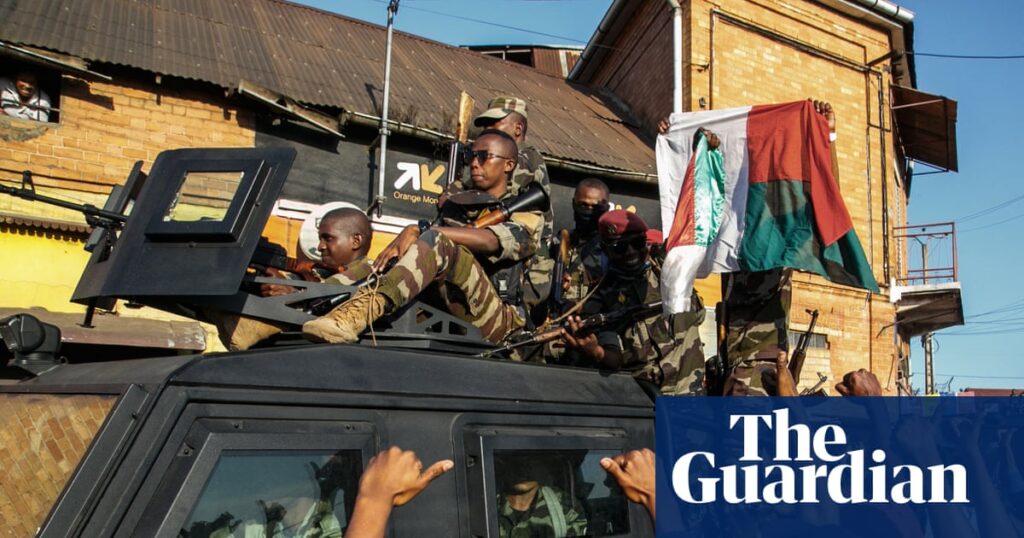Thousands of protesters against Madagascar’s president were joined on the streets of the capital on Saturday afternoon by soldiers from an elite army unit, who earlier in the day said they would not fire on demonstrators.
Protesters marched alongside soldiers from the Capsat unit, who drove armoured vehicles, some waving Madagascar flags, from their base in Soanierana in the south of Antananarivo.
A Capsat leader, Lylison René de Rolland, then addressed the cheering crowds in front of the city hall in 13 May Square, which protesters had previously been prevented from reaching. Capsat soldiers brought the current president, Andry Rajoelina, to power in a coup in 2009.
The soldiers’ intervention ratcheted up pressure on Rajoelina, who demonstrators have been demanding stand down. The youth-led protests broke out on 25 September, initially over water and electricity cuts. However, they quickly widened into calls for a complete overhaul of the political system, with the gen Z protesters not placated by Rajoelina firing his government last week.
Earlier in the day, police fired stun grenades and teargas to try to disperse the protesters. The recently appointed minister of the armed forces also called on troops to “remain calm”, at a press conference on Saturday.
“We call on our brothers who disagree with us to prioritise dialogue,” minister general Deramasinjaka Manantsoa Rakotoarivelo said. “The Malagasy army remains a mediator and constitutes the nation’s last line of defence.”
However, a Capsat leader accompanied by a large group of soldiers called on other military units to “refuse orders to shoot your friends”, in a video that was posted on social media before they left their barracks.
“Let us join forces, military, gendarmes and police, and refuse to be paid to shoot our friends, our brothers and our sisters,” he said, also calling on soldiers at the airport to “prevent all aircraft from taking off”.
“Close the gates and await our instructions,” he said. “Do not obey orders from your superiors. Point your weapons at those who order you to fire on your comrades-in-arms, because they will not take care of our families if we die.”
Nothing has been posted on the president’s social media accounts since Friday evening, when he was pictured meeting the heads of 10 of the country’s universities to discuss improving students’ lives.
An activist who attended Saturday’s demonstrations said she was concerned about the involvement of Capsat, due to their role in the 2009 coup that brought Rajoelina to power. She also criticised politicians who made brief addresses to the crowds in front of the city hall as “opportunists”.
“That’s why I’m not rejoicing at all, because all of those people gravitating around this ‘event’ are all dangerous,” said the activist, who didn’t want to be named for fear for her safety.
A member of Gen Z Madagascar, a leaderless group of young people that has helped to coordinate the protests, also expressed doubts about what would happen next. “We are very happy, but a lot is happening [and] we don’t want another corrupted person to take the power here, so we will do everything to have the right to choose who to put up there,” he said.
Agence France-Presse contributed to this report.

